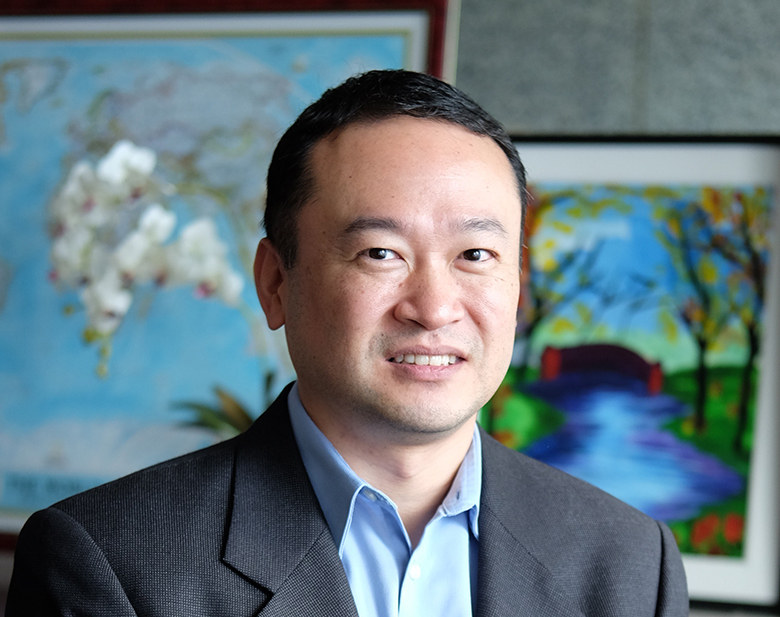Kenji Yuhaku, senior strategy, policy and partnerships adviser at the Asian Development Bank
First in, first out? When China posted a sharp fall in new cases of Covid-19 in early April, followed by South Korea, some people began to hope. Was there light at the end of the tunnel?
And if the economies of China and Asia find a way to bounce back fast, could they offer lessons to the rest of the world about the likely state of economic and financial life after lockdown?
Alas, hope can be dangerous. Asked if Asia was past the worst of the pandemic, Kenji Yuhaku, senior strategy, policy and partnerships adviser at the Asian Development Bank, sighs.
“The region as a whole does not seem to have peaked,” he warns.
“Only a very few countries have lessened quarantine measures, while many more have only recently instituted strong measures,” he adds. “It is not clear whether Asia will be first in, first out of Covid-19, and that makes it very tricky to draw any deciding conclusions, at least for now, about what kind of world will emerge.”
Confirmed new coronavirus cases are still on the rise in India and Indonesia, while a second surge of positive tests has rattled Singapore. On April 22, China drew a net around the northeast city of Harbin to contain a renewed outbreak of the disease that likely re-entered the country from Russia.
Workshop of the world
The problem this presents is clear. As the workshop of the world, Asian economies are based on the frictionless flow of trade within the region and the export of goods, primarily to the US and Europe. When that well-oiled machine sputters, so does Asia.
That, says Yuhaku, is why “there is a need to get trade flowing again.”
He adds: “Supporting trade finance is urgently important. Asia is a key contributor to supply chains around the world, so providing working capital support to small and medium-sized enterprises is vital.”
On April 13, ADB president Masatsugu Asakawa announced a tripling in size of the multilateral’s Covid-19 rescue package, to $20 billion.
Of this, $2 billion will be set aside to support the private sector, most of it in the forms of loans and guarantees to commercial lenders, who will on-lend that capital to liquidity-starved local enterprises.
Supporting trade finance is urgently important. Asia is a key contributor to supply chains around the world, so providing working capital support to small and medium-sized enterprises is vital
– Kenji Yuhaku, Asian Development Bank
Trade “has never been more critical for economic growth [and] jobs, and to ensure medical equipment, food and other vital goods get to where they’re needed,” says Yuhaku.
“Getting working capital to micro, small and medium-sized enterprises in developing economies is critical, as they play an important role in terms of employment generation, production and innovation,” he adds.
The ADB’s trade finance programme supported over $400 million in regional trade flows in April 2020 and $5.4 billion in the whole of 2019, most of it in the form of credit guarantees, risk-participation agreements and revolving credit facilities.
The bank is also investing in projects that help countries combat the spread of Covid-19.
In Sri Lanka, it has allocated $30 million to improving supply chains that help to get essential medical goods to clinics and hospitals faster.
On April 22, it repurposed $50 million from Pakistan’s National Disaster Risk Management Fund to buy supplies and equipment for hospitals.
And on April 23, the ADB approved a whopping $1.5 billion in financing to support Indonesia’s fight against the pandemic.
Vital funding
Yuhaku says the added funding is vital in a region where health spending has all too often failed to keep pace with economic and population growth.
“Many countries across Asia have underinvested in their health systems for years, so there is still a lot of investment needed,” he says. “ADB can assist our developing member countries by leveraging loans and grants from our public and private-sector arms to achieve universal health coverage.”
One of the biggest tasks facing every international financial institution in the current environment is the need to communicate efficiently, internally and with its peers.
This can cut both ways. In one sense Covid-19 has been a positive game-changer. Regular get-togethers have become weekly virtual events overseen by the World Bank and the IMF, allowing multilateral development banks to bounce ideas around and collaborate on projects.
“We are always thinking how can we complement each other,” says Yuhaku.
Yet digital communication isn’t everything. The ADB’s annual meeting, originally slated to take place in South Korea in May, has now been delayed until September – although that date, like everything these days, is subject to change.
“What you miss by holding virtual meetings are the interactions with people – the spontaneous moments where you bump into someone and get to share information and ideas,” says Yuhaku. “That is really helpful.”


 Signal2forex.com - Best Forex robots and signals
Signal2forex.com - Best Forex robots and signals




